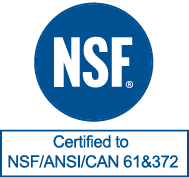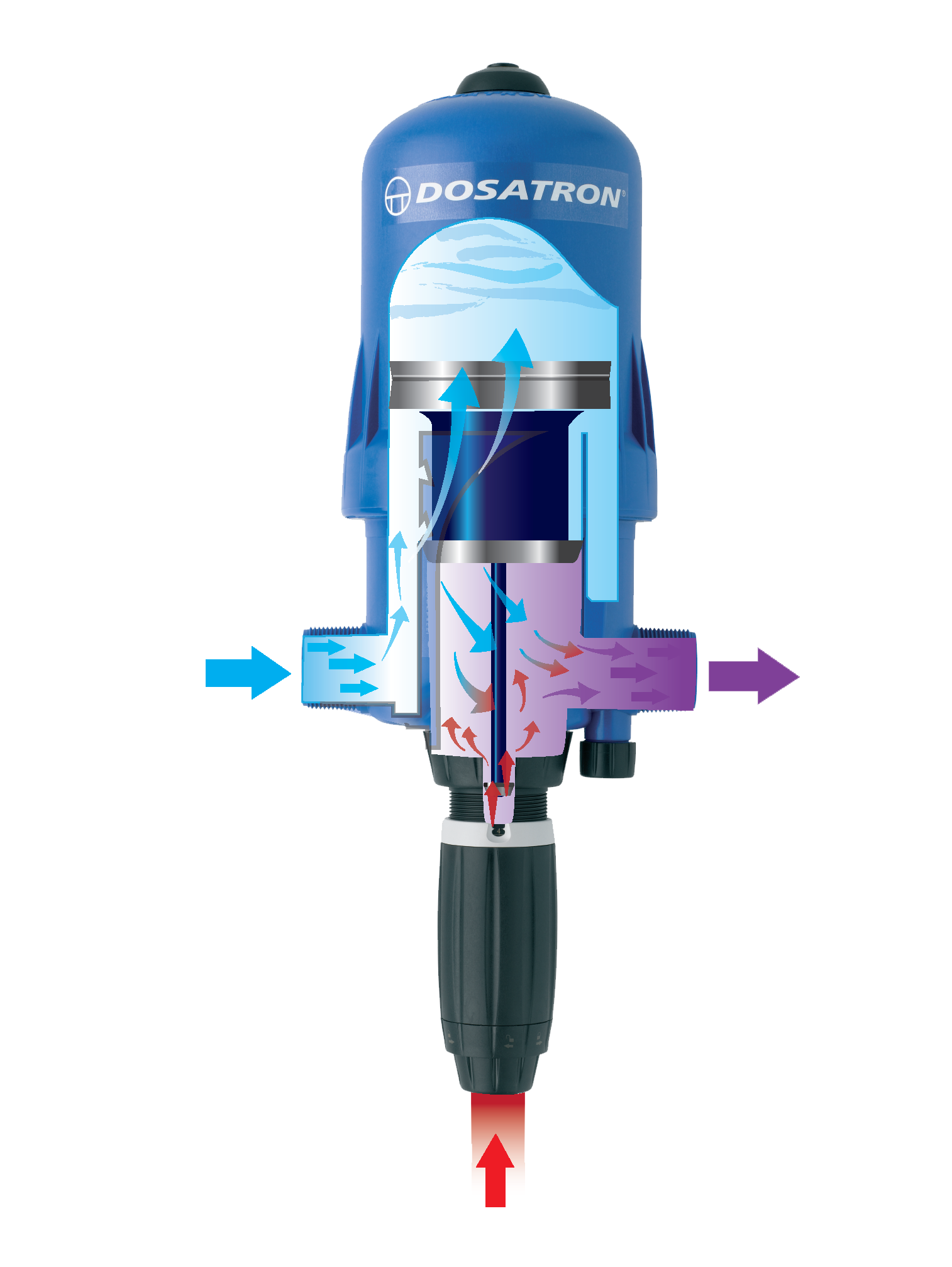Choose a different country or region to see the content specific to your location
Select Your Country/Region
Current Region:
 USA (EN)
USA (EN)
Choose a different country or region to see the content specific to your location
Current Region:
 USA (EN)
USA (EN)
How can we help you?
To make safe drinking water, the Dosatron ACS or NSF certified metering pumps, installed in line with the water pipe, inject a dose of chlorine (NaClo, CaClo) which allows the destruction of organic matter such as viruses and microbes contained in the water, in proportion to the flow rate.
Since a large part of the chlorine is needed to neutralize these organic materials, the dose of chlorine delivered by the metering pump will allow a part, called free residual chlorine, to remain available to treat possible future infection of the water in the network or in the homes.
This free chlorine allows for the persistence of the sanitizing capacity.
According to the WHO, in drinking water, the free chlorine concentration of the treated water should be 0.2 to 0.5 mg/l.
The NSF/ANSI 61 & 372 standard was developed to establish requirements for potential adverse effects on public health of equipment in contact with drinking water (production, transport).
The NSF/ANSI 61 & 372 certified chlorine dosing pumps were subjected to a detailed toxicological analysis. The composition of each device (sub-assemblies, materials, suppliers) was analyzed and referenced by NSF International. Each device has undergone release tests to confirm that harmful particles do not migrate into the water.
The integration of NSF/ANSI 61 & 372 certified chlorine dosing pumps in water treatment applications offers a real alternative to standard dosing technologies, providing precision, robustness and ease of maintenance while protecting the health of users.

The D8WL range of chlorine dosing pumps meets dosing requirements for flow rates from 500 to 8,000 l/h (maximum flow).
The D8WL NSF61 Certified Pumps have obtained the NSF/ANSI/CAN 61 certification: Drinking Water System Components - Health Effects NSF (American approval for all equipment in contact with water intended for human consumption).
These chlorine dosing pumps are characterized by:

Installed on the water network, our metering pump uses water pressure as its sole driving force. Thus actuated, it sucks up the concentrated product, doses it at the desired percentage, then mixes it with the driving water.
The resulting solution is then sent downstream. The dose of product injected is always proportional to the volume of water flowing through our metering pump, regardless of variations in flow rate or network pressure.

In this installation, the injection pump is installed in by-pass in order to facilitate the maintenance of the pump without having to cut off the main water supply.
Be careful in this case the water will not be chlorinated anymore
This configuration also allows, if necessary, and if the main water flow is constant, to carry out a partial by-pass which allows only a part of the flow to go through the metering pump.
Upstream of the chemical dosing pump, on the main pipe, a 60 micron filter is installed to protect the dosing pump motor against impurities. After the filter, it is suggested to install a pressure reducer in order to be sure not to exceed the nominal pressure of the pump.
On the pipe, two taps are made, one before the dosing unit which will be used for the preparation of the mother solution. The other tap downstream of the dispenser can be used for testing the dispenser and/or priming it during start-up, during operation, for taking samples and finally, during maintenance, for rinsing the dispenser.
Finally, a non-return valve is required at the end of the dosing line to prevent water from flowing back into the dosing unit, which could in some cases return to the mother solution and dilute it or even cause the container to overflow.
During the installation, the dosing unit must be at a height higher than the mother solution and ideally not above but on the side.
The new smartphone application from Dosatron will allow you to perform all your chlorination calculations and share them with anyone you want.